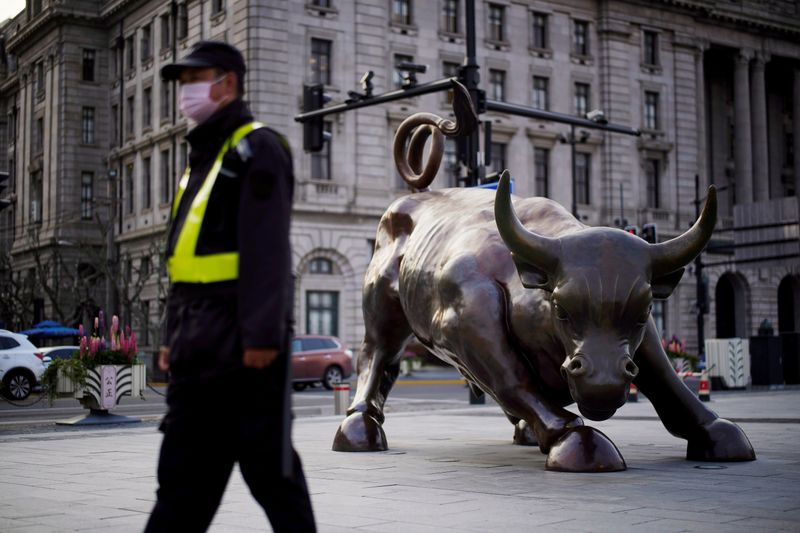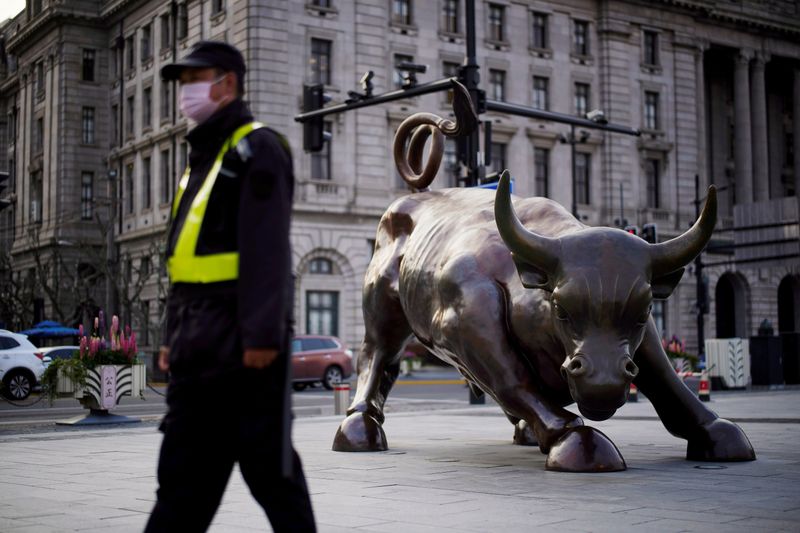By Tom Westbrook
SINGAPORE (Reuters) - The euro stood at an 18-month high, silver soared and commodities rose on Wednesday, benefiting from hopes that key parts of the global economy are heading in the right direction which also hurt the U.S. dollar.
But stock markets, which have surged this month, moved mostly sideways in Asia, except in Australia where a jump in coronavirus infections pushed the main index (AXJO) 1.3% lower.
S&P 500 futures (ESc1) were flat following a mixed session on Wall Street, with economic optimism running into concern about rising coronavirus cases. The focus has also turned to political disagreement over the next U.S. rescue package.
German DAX futures (FDXc1), Euro STOXX 50 futures (STXEc1) and FTSE futures (FFIc1) were down about 0.3%, pointing to a steady open after gains on Tuesday in the wake of European Union leaders striking a deal for a region-wide rescue plan.
The euro's (EUR=EBS) rally gathered steam on that agreement, a huge step toward both recovery and a stronger union, busting through resistance at $1.15 as the dollar faltered.
The common currency hit $1.1547 on Wednesday, its best since January 2019, and the greenback capitulated against the Australian dollar
In sum, bets against the dollar are nearing a two-year peak touched a month ago and investors are net long on all of the G10 currencies against the dollar, save the pound and the Canadian dollar, U.S. Commodity Futures Trading Commission data shows.
"Overall, sentiments are improving," said Vishnu Varathan, head of economics at Mizuho Bank in Singapore. "It's given the euro that afterburner, and it's true for the Aussie as well."
Bellwether copper prices rose in London
Precious metals soared as real bond yields have added to their lustre of precious metals at the same time as industrial demand has put a rocket under prices. [GOL/]
Spot silver
STOCKS CAUTIOUS
News headlines kept optimism about a rebound for the global economy in check.
The United States reported more than 1,000 deaths from COVID-19 on Tuesday, the first time the grim milestone has been passed since June, and President Donald Trump warned that things will probably get worse before they get better.
Republicans and Democrats are also at loggerheads over the size of the next fiscal relief package as a month-end deadline for extending unemployment insurance looms.
"It remains to be seen if Republicans and Democrats have the same resolve demonstrated by EU leaders to find middle ground by next week," DBS analysts in Singapore said in a note.
The spread of the coronavirus also gathered pace in India, Latin America, Tokyo, Hong Kong and Melbourne.
Japanese factory activity contracted for a 15th straight month in July and geopolitical tensions are simmering.
Japan's Nikkei (N225) dipped 0.6%. MSCI's broadest index of Asia-Pacific shares outside Japan (MIAPJ0000PUS) fell 0.1% to retreat from a five-month top made on Tuesday.

Oil prices remain rangebound, hurt by inventory concerns. Brent futures (LCOc1) slipped 0.4% to $44.14 per barrel and U.S. crude fell 0.5% to $41.70 a barrel. [O/R]
